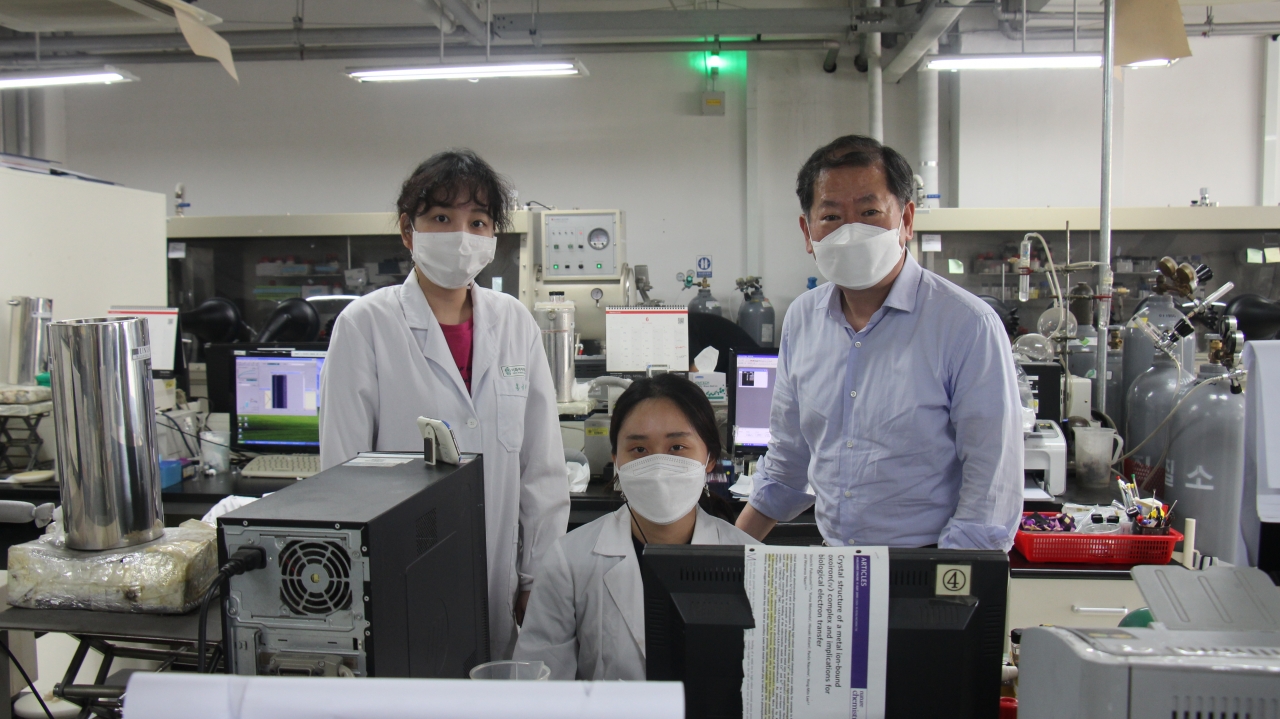
Ewha recently made a significant achievement in the research and development (R&D) sector, ranking first place in CWTS Leiden Ranking’s “Top 1% Publications” among universities in South Korea.
Earlier this year, the newly elected President Kim Eun-mee stressed the importance of expanding the R&D sector and discussed her plans to increase investment. Several research institutions have been selected as core facility support centers, including the new medicine development core center under Professor Kwon Young-joo from the College of Pharmacy.
Research projects have also been recognized by global research journals. Professor Bahn Hyo-kyung from Computer Science & Engineering and his team developed a scheduling technology that can immediately respond to sudden user input in a real-time system. This technology was published online in “IEEE Transactions on Industrial Informatics” and ranked first place in the Journal Citation Report in the field of industrial engineering.
Most notably, Professor Nam Won-woo from Chemistry & Nanoscience and his team have been chosen to be part of the National Research Foundation of Korea’s Research Leader Program to continue their research in oxygen chemistry. Only the top 0.3 percent of researchers are selected to be part of the Leader Program. Those selected receive fundings for nine years. Professor Nam set the record for being the first scientist to receive fundings three times in a row amongst domestic scientists.
Ewha Voice interviewed Professor Nam as he shared his insight on Ewha’s R&D sector based on his 39 years of experience as a professor and scientist. According to Professor Nam, Ewha’s R&D sector began to flourish after President Chang Sang was elected as the 11th president.
“Since the early 2000s, every president has shown great ambition to expand the R&D sector,” Professor Nam said. “Ewha has continuously provided financial and spatial support. In fact, I was given the privilege to use the entire first floor of the Human Ecology Building for research, which is quite rare for colleges in South Korea.”
Achievements in R&D play a significant role in Ewha’s reputation. Prestigious agencies evaluate universities according to each of their own metrics with different standards. However, they all commonly account for R&D as a crucial factor that decides a university’s reputation and value.
The QS World University Ranking, for example, allots 20 percent of the entire score to the metric based on research quality. It measures research quality with a calculation of dividing the total count of citations received by all the research of a university into the number of faculty members on a five-year basis.
Likewise, Times Higher Education (THE) allocates two different areas, Research and Citations, to reflect a university’s research accomplishment on the ranking. The Research area calculates the research income rate and publication rate along with a survey about R&D. THE considers the number of citations an indicator for the quality of each school’s research, taking Field Weighted Citation Impact into account.
Currently, Ewha is trying to improve its R&D sector through Ewha Vision 2030+, prioritizing “constructing a creative research ecosystem” as the very first goal. Professor Nam has a generally positive outlook on the declaration. At the same time, he asserts that the vision for a better R&D environment cannot be established without substantive measurements.
“A competitive but supportive research environment should be settled in Ewha, so that researchers can develop their capabilities to compete on a worldwide scale,” Professor Nam claimed. “All projects should be based on a single goal, providing full support to exclusively adroit researchers, allowing accumulation of prominent researchers in Ewha. Better reputation of Ewha would come with the flow.”
Professor Nam even suggested several means to establish a better environment for research and motivate researchers. He asserts that there must be a TF team or any other sort of implementation that actively gathers the needs of each research team, followed by practical support. He also highlighted the necessity of sufficient incentives which allow researchers to feel a sense of accomplishment.
In spite of the ever-growing R&D sector, Ewha is losing many students who are willing to earn doctoral degrees and continue their careers as researchers. At the end of the interview, Professor Nam encouraged all students hesitating to earn doctoral degrees to continue their education.
“All you need is motivation and determination to continue,” Professor Nam concluded. “Only then will a path naturally appear and guide your way.

